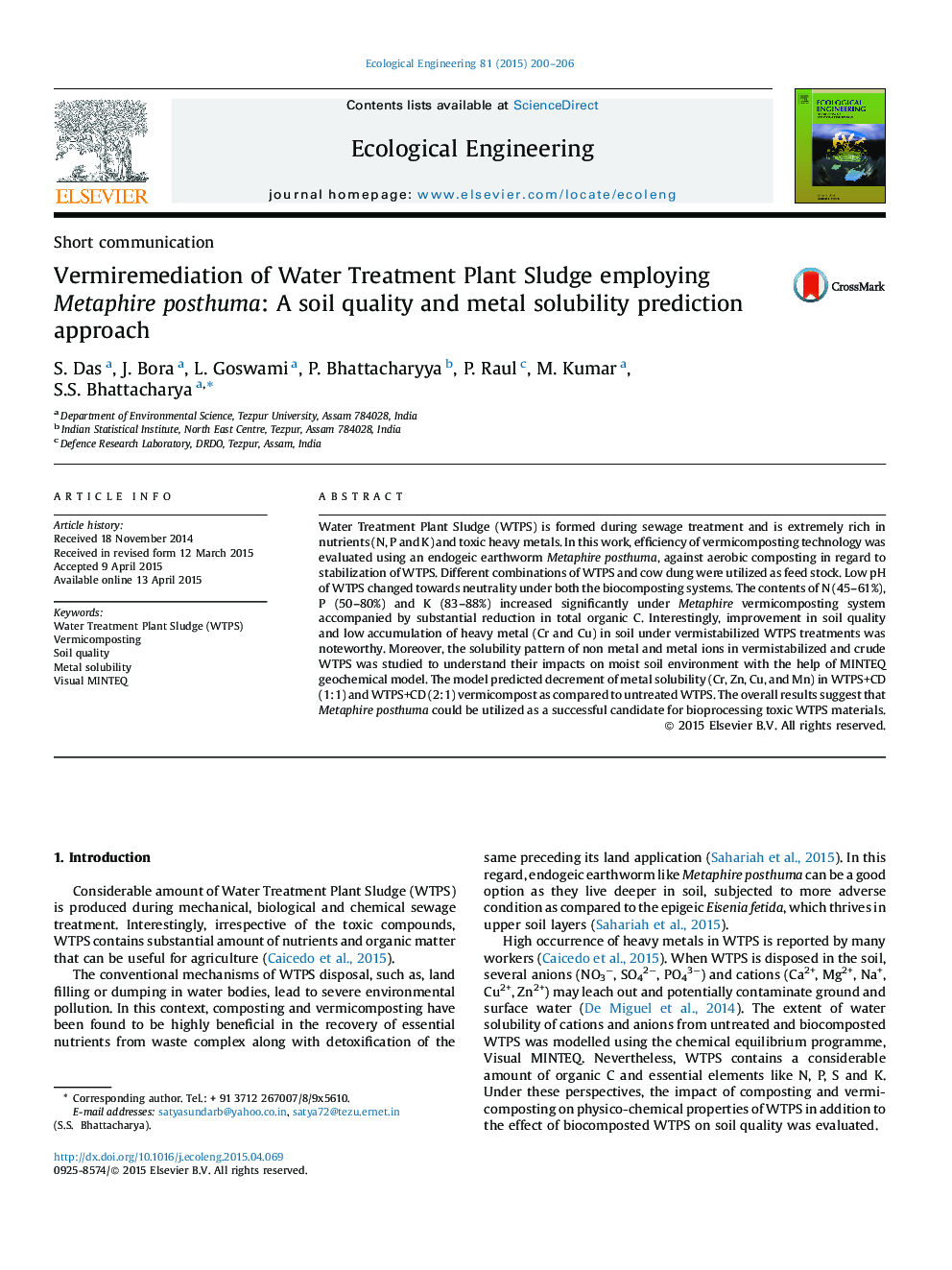| Article ID | Journal | Published Year | Pages | File Type |
|---|---|---|---|---|
| 4389074 | Ecological Engineering | 2015 | 7 Pages |
•Vermicomposting of water treatment sludge is highly feasible.•Metaphire posthuma is an effective agent to stabilize water treatment sludge.•Precipitation/dissolution dynamics of ions is predicted through Visual MINTEQ.•Vermicomposted WTPS improves soil quality and reduce metal toxicity.
Water Treatment Plant Sludge (WTPS) is formed during sewage treatment and is extremely rich in nutrients (N, P and K) and toxic heavy metals. In this work, efficiency of vermicomposting technology was evaluated using an endogeic earthworm Metaphire posthuma, against aerobic composting in regard to stabilization of WTPS. Different combinations of WTPS and cow dung were utilized as feed stock. Low pH of WTPS changed towards neutrality under both the biocomposting systems. The contents of N (45–61%), P (50–80%) and K (83–88%) increased significantly under Metaphire vermicomposting system accompanied by substantial reduction in total organic C. Interestingly, improvement in soil quality and low accumulation of heavy metal (Cr and Cu) in soil under vermistabilized WTPS treatments was noteworthy. Moreover, the solubility pattern of non metal and metal ions in vermistabilized and crude WTPS was studied to understand their impacts on moist soil environment with the help of MINTEQ geochemical model. The model predicted decrement of metal solubility (Cr, Zn, Cu, and Mn) in WTPS+CD (1:1) and WTPS+CD (2:1) vermicompost as compared to untreated WTPS. The overall results suggest that Metaphire posthuma could be utilized as a successful candidate for bioprocessing toxic WTPS materials.
